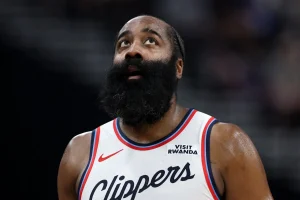The Evolution of Free Speech Politics: From Harris to Kimmel
In a striking display of political contradiction, Vice President Kamala Harris has recently defended talk show host Jimmy Kimmel’s right to free speech after his show was pulled from ABC, despite her own history of advocating for social media censorship. This apparent shift in perspective has ignited debate across the political spectrum about consistency in free speech principles among political leaders.
Harris took to social media platform X to condemn what she called an “outright abuse of power” regarding Disney’s decision to suspend “Jimmy Kimmel Live!” indefinitely. “This administration is attacking critics and using fear as a weapon to silence anyone who would speak out,” Harris wrote, positioning herself as a defender of free expression. “Media corporations — from television networks to newspapers — are capitulating to these threats. We cannot dare to be silent or complacent in the face of this frontal assault on free speech.” Her statement framed the situation as a fundamental threat to democratic values, suggesting that government pressure had led to corporate censorship of Kimmel’s voice.
The controversy stemmed from Kimmel’s monologue about the attempted assassination of conservative figure Charlie Kirk, in which Kimmel accused “the MAGA gang” of “desperately trying to characterize this kid who murdered Charlie Kirk as anything other than one of them.” This statement provoked outrage among conservatives, who pointed out that prosecutors had confirmed the suspect’s left-wing ideology in court documents. Elon Musk, owner of platform X, quickly highlighted the apparent inconsistency in Harris’s position by resurfacing her 2019 tweet calling for then-President Trump’s Twitter account to be suspended. Musk’s subtle commentary – simply a thinking face emoji alongside Harris’s old tweet – resonated with users who saw a double standard in Harris’s newfound concern for free expression.
The role of the Federal Communications Commission in Kimmel’s suspension has been particularly contentious. FCC Chairman Brendan Carr appeared on Fox News to defend local affiliates that pulled Kimmel’s show, arguing that “broadcasters are different than any other form of communication” and have special “public interest obligations.” However, even conservative voices like Senator Ted Cruz cautioned against this approach, warning that conservatives “will regret” setting a precedent of government-influenced media censorship. “What he is saying is Jimmy Kimmel was lying. That’s true, he was lying, and lying to the American people is not in the public interest,” Cruz acknowledged on his podcast, but he expressed concern about threats to “cancel ABC News’ license” or take the network “off the air.”
The White House has actively distanced itself from the decision to suspend Kimmel’s show. Press Secretary Karoline Leavitt told Fox News that “the decision to fire Jimmy Kimmel and to cancel his show came from executives at ABC,” emphasizing that “it did not come from the White House and there was no pressure given from the president of the United States.” This denial highlights the sensitivity around government influence over media content, particularly as the Biden-Harris administration has faced its own censorship controversies. During the COVID-19 pandemic, then-White House Press Secretary Jen Psaki publicly acknowledged that the administration was “flagging problematic posts for Facebook that spread disinformation,” raising questions about appropriate government involvement in content moderation.
The ongoing debate reflects a deeper tension in American politics about the boundaries of free speech and the role of both government and private companies in regulating expression. In August 2024, Meta CEO Mark Zuckerberg admitted in a letter to House Judiciary Committee Chairman Jim Jordan that the Biden-Harris administration had pressured Facebook to censor certain content. This revelation, coming just before the presidential election, added fuel to conservative claims that Democratic leaders selectively apply free speech principles. As the Kimmel controversy continues to unfold, it serves as a mirror reflecting how political figures across the spectrum often recalibrate their positions on free expression depending on whose speech is being limited – highlighting the challenge of maintaining consistent principles when partisan interests are at stake.













